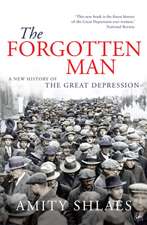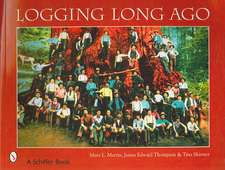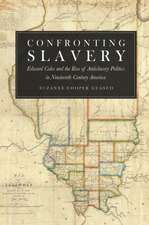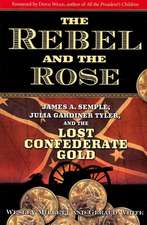The Early American Table: Food and Society in the New World
Autor Trudy Edenen Limba Engleză Paperback – 30 ian 2010
An exploration in the history of biopolitics, The Early American Table offers a unique study of the ways in which English colonists in North America incorporated the “you are what you eat” philosophy into their conception of themselves and their proper place in society. Eden aptly demonstrates that ideas about the body—ideas that may seem irrelevant or even laughable today—not only guided day-to-day personal behavior but also influenced society and politics.
According to the 17th- and 18th-century understanding of the body, food affected the blood, bones, mind, and spirit in ways other social markers (e.g. clothes, manners, speech) did not because food was directly assimilated by the consumer. A plentiful, varied diet of high-quality refined foods created virtuous, refined individuals fit to govern society. In contrast, a more restricted diet of poor quality, coarse foods made an individual coarse, even beastly, and unfit to lead.
In the Old World, especially before 1600, poverty, legal restrictions, and the scarcity of land prohibited most individuals from purchasing or raising foods believed to produce refinement and virtue. Only the wealthy were able to enjoy such a diet. In turn, this elite diet marked their social status and reaffirmed their entitlement to power.
The English men and women who colonized North America throughout the colonial period held the idea that diet shaped character. After only a few decades of settlement, many of them enjoyed the unprecedented prosperity enabled by the fertile environment. Lower and middling families could set their tables with a greater variety and higher quality of food than their social counterparts in England. As a result, in contrast to England where an aristocrat’s dinner was far different than a laborer’s, in America, the differences between the diets of artisans and urban laborers, of plantation owners and small farmers, were not as great. In short, the American diet was a democratic diet that had social and political consequences.
According to the 17th- and 18th-century understanding of the body, food affected the blood, bones, mind, and spirit in ways other social markers (e.g. clothes, manners, speech) did not because food was directly assimilated by the consumer. A plentiful, varied diet of high-quality refined foods created virtuous, refined individuals fit to govern society. In contrast, a more restricted diet of poor quality, coarse foods made an individual coarse, even beastly, and unfit to lead.
In the Old World, especially before 1600, poverty, legal restrictions, and the scarcity of land prohibited most individuals from purchasing or raising foods believed to produce refinement and virtue. Only the wealthy were able to enjoy such a diet. In turn, this elite diet marked their social status and reaffirmed their entitlement to power.
The English men and women who colonized North America throughout the colonial period held the idea that diet shaped character. After only a few decades of settlement, many of them enjoyed the unprecedented prosperity enabled by the fertile environment. Lower and middling families could set their tables with a greater variety and higher quality of food than their social counterparts in England. As a result, in contrast to England where an aristocrat’s dinner was far different than a laborer’s, in America, the differences between the diets of artisans and urban laborers, of plantation owners and small farmers, were not as great. In short, the American diet was a democratic diet that had social and political consequences.
| Toate formatele și edițiile | Preț | Express |
|---|---|---|
| Paperback (1) | 241.88 lei 6-8 săpt. | |
| Northern Illinois University Press – 30 ian 2010 | 241.88 lei 6-8 săpt. | |
| Hardback (1) | 292.46 lei 6-8 săpt. | |
| Northern Illinois University Press – 25 feb 2008 | 292.46 lei 6-8 săpt. |
Preț: 241.88 lei
Nou
Puncte Express: 363
Preț estimativ în valută:
46.28€ • 48.33$ • 38.22£
46.28€ • 48.33$ • 38.22£
Carte tipărită la comandă
Livrare economică 15-29 aprilie
Preluare comenzi: 021 569.72.76
Specificații
ISBN-13: 9780875806372
ISBN-10: 0875806376
Pagini: 203
Ilustrații: 17
Dimensiuni: 152 x 229 x 20 mm
Greutate: 0.32 kg
Ediția:1
Editura: Northern Illinois University Press
Colecția Northern Illinois University Press
ISBN-10: 0875806376
Pagini: 203
Ilustrații: 17
Dimensiuni: 152 x 229 x 20 mm
Greutate: 0.32 kg
Ediția:1
Editura: Northern Illinois University Press
Colecția Northern Illinois University Press
Recenzii
"A valuable addition to the body of scholarly works exploring history and culture through the lens of food. An intelligent, original contribution. Highly Recommended."—Choice
“A fascinating study.”—Hilda Smith, University of Cincinnati
“An original contribution to several fields of early American history and of British history too.”—David Fahey, Miami University, Ohio
Notă biografică
Trudy Eden is Associate Professor of History at the University of Northern Iowa.
Cuprins
Table of Contents
Preface
Introduction
Part I. The Individual Golden Mean
Chapter One. The Humoral Body
Chapter Two. The Humoral Society
Chapter Three. Secure People and Societies
Chapter Four. Insecurity and the Common Kettle
Part II. The Social Golden Mean
Chapter Five. The Mechanical Body
Chapter Six. American Icons
Chapter Seven. Which Golden Mean?
Chapter Eight. A Mechanical Society
Chapter Nine. The Yeoman Farmer
Conclusion
Notes
Works Cited
Index
Introduction
Part I. The Individual Golden Mean
Chapter One. The Humoral Body
Chapter Two. The Humoral Society
Chapter Three. Secure People and Societies
Chapter Four. Insecurity and the Common Kettle
Part II. The Social Golden Mean
Chapter Five. The Mechanical Body
Chapter Six. American Icons
Chapter Seven. Which Golden Mean?
Chapter Eight. A Mechanical Society
Chapter Nine. The Yeoman Farmer
Conclusion
Notes
Works Cited
Index
Descriere
An exploration in the history of biopolitics, The Early American Table offers a unique study of the ways in which English colonists in North America incorporated the “you are what you eat” philosophy into their conception of themselves and their proper place in society. Eden aptly demonstrates that ideas about the body—ideas that may seem irrelevant or even laughable today—not only guided day-to-day personal behavior but also influenced society and politics.
According to the 17th- and 18th-century understanding of the body, food affected the blood, bones, mind, and spirit in ways other social markers (e.g. clothes, manners, speech) did not because food was directly assimilated by the consumer. A plentiful, varied diet of high-quality refined foods created virtuous, refined individuals fit to govern society. In contrast, a more restricted diet of poor quality, coarse foods made an individual coarse, even beastly, and unfit to lead.
In the Old World, especially before 1600, poverty, legal restrictions, and the scarcity of land prohibited most individuals from purchasing or raising foods believed to produce refinement and virtue. Only the wealthy were able to enjoy such a diet. In turn, this elite diet marked their social status and reaffirmed their entitlement to power.
The English men and women who colonized North America throughout the colonial period held the idea that diet shaped character. After only a few decades of settlement, many of them enjoyed the unprecedented prosperity enabled by the fertile environment. Lower and middling families could set their tables with a greater variety and higher quality of food than their social counterparts in England. As a result, in contrast to England where an aristocrat’s dinner was far different than a laborer’s, in America, the differences between the diets of artisans and urban laborers, of plantation owners and small farmers, were not as great. In short, the American diet was a democratic diet that had social and political consequences.
According to the 17th- and 18th-century understanding of the body, food affected the blood, bones, mind, and spirit in ways other social markers (e.g. clothes, manners, speech) did not because food was directly assimilated by the consumer. A plentiful, varied diet of high-quality refined foods created virtuous, refined individuals fit to govern society. In contrast, a more restricted diet of poor quality, coarse foods made an individual coarse, even beastly, and unfit to lead.
In the Old World, especially before 1600, poverty, legal restrictions, and the scarcity of land prohibited most individuals from purchasing or raising foods believed to produce refinement and virtue. Only the wealthy were able to enjoy such a diet. In turn, this elite diet marked their social status and reaffirmed their entitlement to power.
The English men and women who colonized North America throughout the colonial period held the idea that diet shaped character. After only a few decades of settlement, many of them enjoyed the unprecedented prosperity enabled by the fertile environment. Lower and middling families could set their tables with a greater variety and higher quality of food than their social counterparts in England. As a result, in contrast to England where an aristocrat’s dinner was far different than a laborer’s, in America, the differences between the diets of artisans and urban laborers, of plantation owners and small farmers, were not as great. In short, the American diet was a democratic diet that had social and political consequences.














